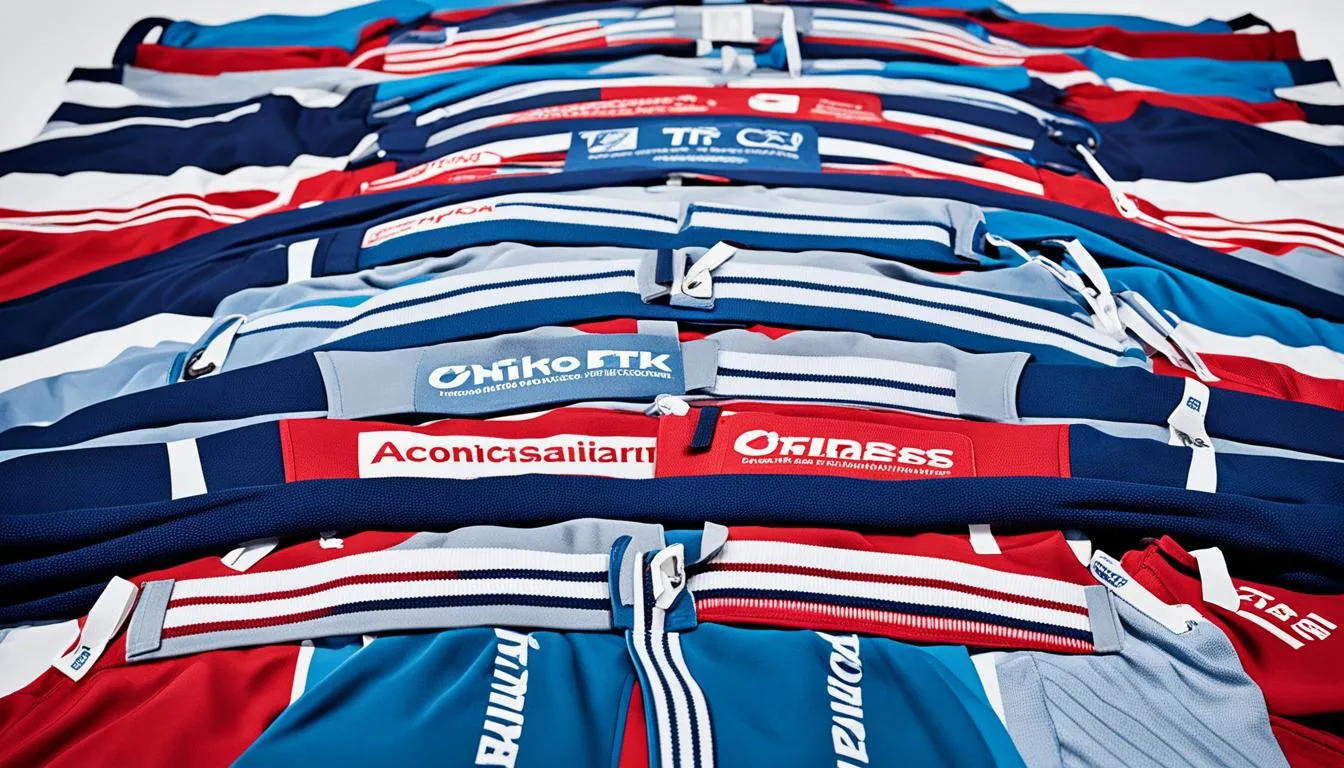Ethical Sourcing and Its Role in Supply Chain Transparency
Connect With Us Today
Consider us for your next production run. Why wait? Send us your questions here.
In today’s world, people want businesses to be honest. This is why ethical sourcing is now more important than ever. It’s not just a way to do business. It’s about being responsible and making sure everything is fair and sustainable from start to finish. Companies show they care about doing the right thing through ethical sourcing. This builds a strong bond of trust with their customers.
When companies choose ethical sourcing, they answer a call for more openness. This approach spreads fairness and responsibility all over the world. It’s about being truly committed to good practices. This commitment strengthens a brand’s image and connects deeply with customers who care about ethical buying.
Key Takeaways
- The significance of ethical sourcing in promoting supply chain transparency is unparalleled.
- Responsible practices underpin the foundation of sustainable business operations.
- Fair trade principles are integral to the ethos of ethical procurement.
- Corporate social responsibility is a powerful catalyst for establishing consumer trust.
- Adopting ethical sourcing is not a mere trend but a strategic move towards long-term business integrity.
The Rising Demand for Transparency in Global Supply Chains
Businesses face a tougher world now, making transparency in supply chains a must-have. Supply chains have gotten more complex, making transparency more important. This push for openness is shaping new industry standards.
From Obscurity to Necessity: The Evolution of Supply Chain Transparency
Transparency in supply chains has gone from a nice-to-have to essential. The pandemic caused shipping prices to skyrocket, showing how unpredictable supply chains can be1. The Global Supply Chain Pressure Index also saw big changes, adding stress to businesses1. These events made it clear that companies need to see into their supply chains better.
Pressures and Incentives for Greater Transparency in Business Operations
Wanting clearer supply chains isn’t just about handling crises. Supply chain problems played a big role in recent U.S. inflation, pushing companies to be more open1. The 2011 Japan earthquake had a big impact too, showing how connected global economies are1. Businesses are looking at spreading out their risks, a move that could cut losses from big shocks significantly1.
Big companies like Amazon are leading the way in transparency. They check suppliers carefully, looking at labor, safety, environment, and ethics2. By doing so, they encourage high standards across the board and make their supply chains better2.
How Millennials and Gen Z Fuel the Ethical Sourcing Movement
Younger consumers are pushing for more transparency. A lot of them care more about the environment and ethical sourcing3. They’re willing to spend more on products that meet these standards. This is making companies use new tech and clear policies to meet these demands3. Efforts like training and open reporting are helping fuel an ethical sourcing movement3.
The pursuit of transparency in today’s global supply chains strikes a balance between the robustness needed to withstand global shocks and the ethical considerations demanded by informed consumers.

The global supply chain landscape is changing, highlighting the need for transparency. The data shows that business resilience, product integrity, and economic health are linked to transparency. Tackling these issues is now a shared duty, pushing everyone to be clear in how they buy and sell.
Despite challenges, the benefits of being open are clear—better trust, loyalty, and a competitive advantage. As businesses move forward, aligning supply chain transparency with ethical expectations is crucial. This opens new opportunities for businesses worldwide.
Ethical Sourcing – Defining the Concept and Its Impact on Business Integrity
Understanding ethical sourcing is vital for businesses that value integrity and sustainable practices. It means companies choose to buy goods and services in ways that don’t harm human rights, fair trade, or the environment. This approach builds trust and respect while avoiding harmful practices like greenwashing.

The Pillars of Ethical Sourcing: Human Rights, Fair Trade, and Environmental Impact
The core of ethical sourcing involves human rights, fair trade, and environmental impact. Respecting human rights ensures dignified treatment of workers. Fair trade means fair prices and conditions for labor. And considering environmental impact helps protect our planet. This threefold approach is both the right thing to do and good for business, aiding in long-term relationships and customer loyalty.
- Human Rights: Safe working conditions and fair wages are essential.
- Fair Trade: Fair dealings and fair pay for producers are crucial.
- Environmental Impact: Aims to lower carbon output and promote sustainability in production.
Understanding the Difference Between Ethical Sourcing and Greenwashing
Ethical sourcing is about being open in how a company operates. It stands in stark contrast to greenwashing, where companies falsely claim to be eco-friendly. Knowing the difference is key for consumers and stakeholders who care about real business integrity and environmental claims.
True ethical sourcing is about being measurable, transparent, and upholding core values in human rights, fair trade, and caring for the environment.
| Aspect | Ethical Sourcing | Greenwashing |
|---|---|---|
| Claims Verification | Audits and third-party certifications are used. | Often, there’s no real proof, or information is misleading. |
| Impact on Stakeholders | Builds positive, durable connections. | Trust is lost when false claims are revealed. |
| Business Goal | Aims for sustainable growth and maintaining integrity. | Focuses on quick wins through dishonesty. |
In summary, adopting a strong ethical sourcing strategy is about more than just avoiding greenwashing. It means ensuring every part of the supply chain upholds the values of dignity and respect for the environment. Being able to clearly define and implement ethical sourcing is crucial for any business seeking integrity in today’s world of accountability.
Implementing Ethical Sourcing Practices in Your Business
Today, consumers demand accountability. This has made ethical sourcing implementation essential for companies that value integrity and trust4. Starting this journey means outlining clear steps. It also means using technology to keep the supply chain transparent and meet high ethical standards.
Mapping Your Supply Chain: A Step Towards Ethical Oversight
Mapping your supply chain is key to understanding its risks and complexities. It helps companies clearly see who is involved and assess potential issues4.
Deploying Technology for Enhanced Supply Chain Visibility
More companies are using technology to make their supply chains clear. They’re using tools like blockchain and data analytics to support ethical sourcing4. These technologies help track where goods come from and spot any problems early. This way, companies can handle risks better4
Supplier Audits and Certifications: Holding the Line on Ethical Standards
Supplier audits are crucial for checking if partners follow ethical standards4. These reviews help find any gaps in compliance. They also promote ongoing improvement4.
| Audit Components | Benefits | Technology Utilized |
|---|---|---|
| Labor Rights Checks | Ensures fair wages and working conditions | Mobile Auditing Apps |
| Environmental Impact Assessment | Mitigates reputational risks and enhances brand loyalty | Environmental Management Software |
| Compliance Verification | Builds trust with stakeholders and consumers | Blockchain for Proof of Origin |
| Code of Conduct Adherence | Aligns supplier practices with company’s CSR initiatives | Data Analytics Tools |
By focusing on these key areas, businesses show their commitment to a fair and sustainable global supply chain. This builds trust with consumers and partners who value ethical sourcing and openness4.
Case Studies: Companies Leading the Way in Ethical Sourcing
Looking into ethical sourcing case studies shows how leading companies are making big improvements. They focus on better environmental sustainability and corporate responsibility. Ajinomoto and Braskem are at the forefront with their strong efforts.
Ajinomoto tackles its environmental footprint as a global food corporation. It realizes that bought goods and services make up a big part of its emissions. In 2016, this amounted to 7.7 million tonnes of carbon dioxide5. They are changing the game in packaging as well. They used 235,000 tonnes of raw materials, including 45,000 tonnes of plastic and 139,000 tonnes of paper and cardboard5. Unique in the world, Ajinomoto offers drinks in 100% recycled heat-resistant PET bottles. This cuts down the virgin plastic use by about 2,000 tonnes every year5.
Braskem focuses its ethical sourcing in the agriculture field, using agricultural inputs for only 3% of its materials5. It’s known for an eco-friendly approach, seen in its biopolymer plant. This facility can produce 200,000 tonnes of polyethylene from renewable sources each year. The project’s cost was around US$290 million5. This big investment shows their dedication to lessening dependence on non-renewable sources.
| Ajinomoto’s Ethical Initiatives | Braskem’s Sustainable Practices |
|---|---|
| Advanced recycling for PET bottles | Biopolymer production from renewable resources |
| Major reduction in virgin plastic use | Minimal reliance on agricultural inputs for raw materials |
| Significant cut in CO2 emissions from sourced goods and services | Hefty investment in green polyethylene production capacity |
These companies lead by example, setting their operations focused on sustainability. They motivate other firms to adopt responsible sourcing practices. For deeper insights into these green shifts, check the supply chain case studies. They can be a guide for businesses looking to improve their ethical sourcing strategies.
Conclusion
We’ve looked at the complex world of ethical sourcing and its crucial role in making supply chains transparent. Ethical sourcing is more than a practice. It’s a commitment to caring for our environment, finances, and society. These sustainability principles are key to a business’s integrity6. They build a culture based on responsibility and trust6.
The benefits of ethical sourcing are vast. They improve company relationships and create a positive workplace6. By following top practices like Supplier Code of Conduct and Life Cycle Assessment, companies can lessen their environmental impact. They also make their operations safer6. Looking ahead, we see the growth of circular economy practices. There’s also a push for better use of resources and for logistic companies to adopt sustainable methods. These changes are moving us towards a circular supply chain strategy6.
This discussion shows us the bright side of ethical sourcing. It’s not just a phase but a shift towards better transparency and sustainability. This shift brings real, lasting benefits. By committing to ethical sourcing, companies lead the way in creating a more responsible and sustainable marketplace.
FAQ
What is ethical sourcing?
Why is ethical sourcing important for supply chain transparency?
What is the difference between ethical sourcing and greenwashing?
How can businesses implement ethical sourcing practices?
Can you provide examples of companies that have successfully implemented ethical sourcing practices?
Source Links
- https://www.whitehouse.gov/cea/written-materials/2023/11/30/issue-brief-supply-chain-resilience/
- https://sustainability.aboutamazon.com/human-rights/supply-chain
- https://www.ibm.com/topics/supply-chain-transparency
- https://www.reidellawfirm.com/ethical-sourcing-compliance-checklist/
- https://www.cdp.net/en/research/global-reports/global-supply-chain-report-2018/supply-chain-case-studies
- https://www.gep.com/supply-chain-sustainability
Latest News
How Collaboration Shapes Consumer Preferences in Sportswear
Navigating Consumer Rights and Warranties in Sportswear Sales
Artificial Intelligence in Fashion Forecasting and Trend Analysis
The Shift Towards Inclusive Sizing in Sportswear: Consumer Reactions
The Global Expansion of Luxury Sportswear Brands
From Sketch to Gym: The Design Process of Fashionable Sportswear
Understanding the Role of Trade Associations in Sportswear Compliance
How Economic Trends Influence Consumer Spending on Sportswear
Learning from Successful Global Market Entries
Best Practices for Managing Cross-Cultural Teams
Using Technology to Fight Counterfeit Fashion Products
Carbon Nanotube Fabrics for Superior Strength and Flexibility
The Growth of Fitness Tracking Apparel in Health and Wellness
Exploring the Influence of Social Proof in Sportswear Purchasing
Strategies for Managing Compliance in a Multinational Operation
Trends in Global Footwear: Performance Meets Lifestyle
The Role of Artificial Intelligence in Tracking Supply Chain Operations
Evaluating the Success of Sportswear Collaborative Projects
Evaluating the Potential of Emerging Markets
Global Shifts Towards Gender-Neutral Sportswear
Share This Article
Latest Articles



















